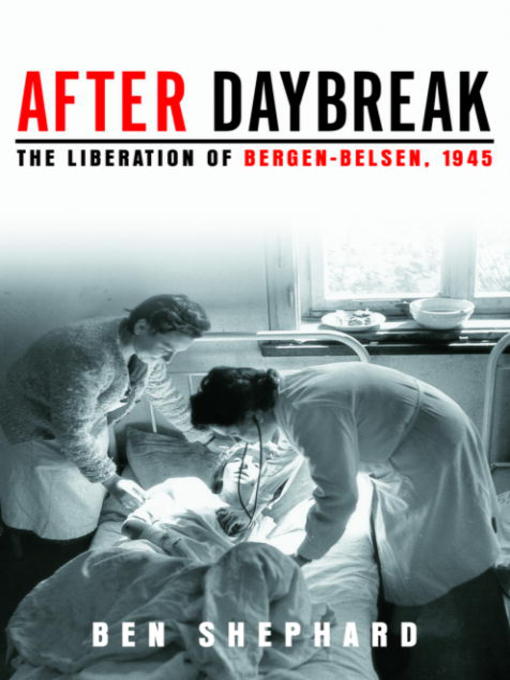
After Daybreak
The Liberation of Bergen-Belsen, 1945
کتاب های مرتبط
- اطلاعات
- نقد و بررسی
- دیدگاه کاربران
نقد و بررسی

October 3, 2005
Why did 14,000 inmates of the Bergen-Belsen concentration camp die after its liberation and under British control? Shephard, creator of the Emmy-winning documentary series The World at War
, casts a critical but judicious eye on British management of the camp. Drawing on letters and diaries by British military and medical personnel, he paints a textured picture of the camp's desperate state, rife with starvation and typhus. Shephard acknowledges the enormity of the problems the British faced and the logistical difficulties of wartime. Yet he makes clear that many deaths could have been prevented. Some died from food that was too rich and heavy for starving people, and the evacuation of both the sick and fit was delayed. At the same time, he commends some people, often outside the military structure, who saved lives through individual initiative and heroic measures. Shephard draws lessons for today in, for instance, the difficulty the military has in dealing with a humanitarian disaster, and the basic reality that there's only so much that can be done when confronting a den of disease. B&w photos. Agent, Clare Alexander.

November 1, 2005
In April 1945, British troops arrived at the Bergen-Belsen camp in Germany. They found 60,000 surviving inmates, most a few days from death. Jews, Poles, Russians, Hungarians, French, Germans, Gypsies, and some criminals were all penned separately and given little food and no medical attention. Typhus, typhoid fever, and starvation had killed perhaps 18,000 in the previous month, and the bodies lay in heaps, unburied. Bergen-Belsen, officially termed a detention camp, was not intended as an extermination site like Auschwitz. But neglect, mismanagement, deliberate mistreatment, and the Allied bombing combined to create yet another horrendous humanitarian disaster. Shephard ("A War of Nerves"), who was responsible for the television documentary "The World at War, "carefully details the British rescue effort (exploring the medical and political aspects that complicated the situation) and asks why 14,000 prisoners died after liberation. His evenhanded dissection of the successes and missteps of the British, who clearly approached the task with the best of intentions, shows that the magnitude of the human disaster encountered was well outside the expectations and abilities of the Allies to handle quickly. This is an important book for any organization involved in disaster relief and certainly contributes to the history of World War II. Highly recommended for subject collections." -Edwin B. Burgess, U.S. Army Combined Arms Research Lib., Fort Leavenworth, KS"
Copyright 2005 Library Journal, LLC Used with permission.

Starred review from November 1, 2005
On April 15, 1945, the first British tanks entered Bergen-Belsen. Inside the concentration camp were piles of dead bodies and 60,000 people--more than half of them Jewish survivors of the Nazi Final Solution. They were still clinging to life and crying out to be saved. Shephard, a documentary filmmaker and historian, notes that it fell to the British to help them. This book is about how they responded to that challenge. He observes that the role played by 96 volunteers from London medical schools who were sent to the camp was lauded, but when historians looked at this event again in the 1990s, they noticed several disturbing elements. Why did it take so long (almost two weeks) to organize a proper medical response? Why were the medical teams sent to the camp so poorly equipped, with only aspirin and opium, and no surgical instruments and anesthetics? Above all, was it inevitable that nearly 14,000 people should die there" after" it was liberated? The answers, Shephard writes, can be found in contemporary military records, diaries, and the testimony of survivors. He concludes that it is a moving story of brotherhood, a sad tale of human frailty, and an illuminating case study. Sixty years later, the author offers readers a precise sense of what went on in the camp day by day. He believes that Bergen-Belsen should be remembered not simply for the evil perpetrated there but for the humane and life-affirming work that was done.(Reprinted with permission of Booklist, copyright 2005, American Library Association.)

























دیدگاه کاربران